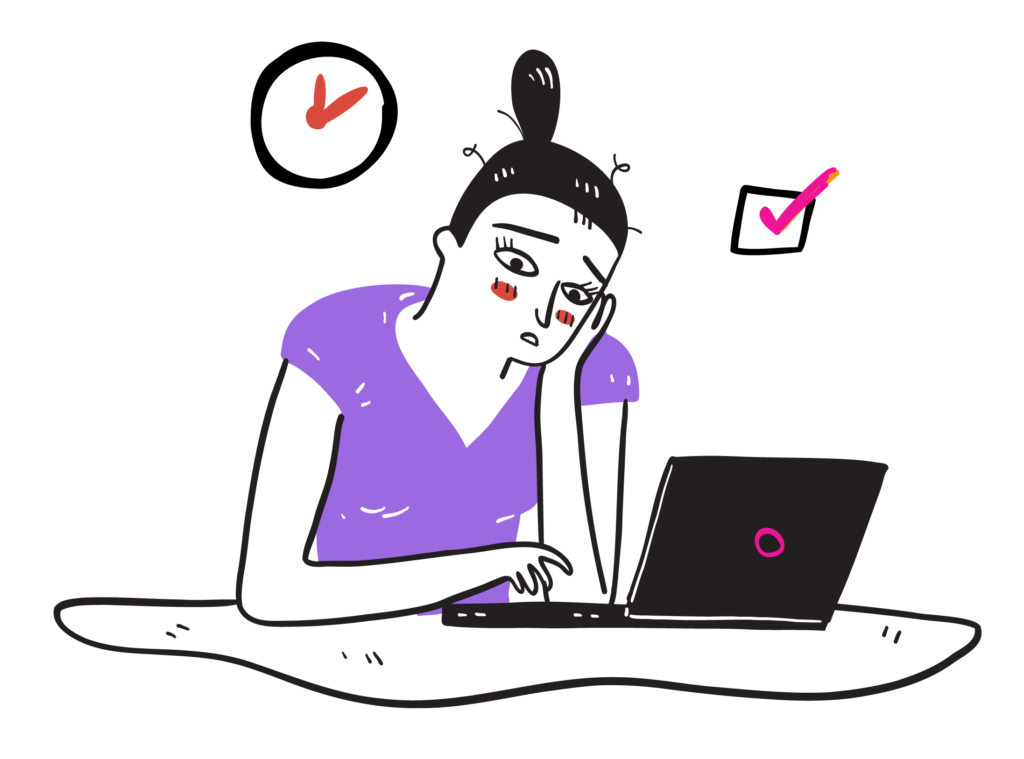
As a person with severe ADHD traits, I’ll be the first to tell you that productivity tools have changed my life.
When life feels chaotic, it’s natural to want to get organized. But there can be a dark side to our all too human quest for efficiency.
Optimization Addiction
We all start with the best intentions, right? Get organized, stay on top of tasks, and works toward achieving your dreams. So you buy some Post-it Notes, put up a wall calendar, download an app — and you’re all set.
But here’s where things get complicated. As amazing as productivity tools can be, sometimes too much optimization add stress to your life.
Things to Look Out For
- Procrastination in Disguise: Ever found yourself meticulously organizing your to-do list or color-coding your planner instead of actually doing the tasks? Yeah, it’s a common trap. This ‘productive procrastination’ gives us the illusion of progress while cleverly keeping us from the real work.
- Overplanning Overload: Planning can be addictive. There’s a certain thrill in mapping out every minute of your day. But overly ambitious planning can lead to a rigid schedule that leaves no room for the unexpected. When life inevitably happens and you can’t stick to the plan, you may feel stressed out and frustrated.
- Perfectionist’s Playground: For the perfectionists among us, productivity tools can become a canvas for our obsessions. Every unchecked item or rescheduled task feels like a failure, reinforcing a cycle of self-criticism and anxiety.
- Analysis Paralysis: Juggling multiple productivity tools or trying to track every aspect of your life can lead to information overload and burnout. It’s like spending hours collaborating on the details of a painting with a committee — but never actually picking up your brush. You end up with a beautiful plan, but zero output. And now that you have to live up to such an elaborate vision, creating a piece of art that perfectly matches the plan seems daunting.
- Spontaneity Suck: When we obsess over calendarizing every minute of our lives, our spontaneity suffers. Life’s unexpected pleasures often come from unplanned moments, and a hyper-organized schedule can rob us of the joy of randomness.
What You Can Do
Productivity tools aren’t the really problem — this is more about how we use them.
Here are some tips to take advantage of all the benefits while avoiding rigid optimization:
- Simplify: Choose one or two tools that truly meet your needs and stick with them. You don’t need every app or planner out there. Find what works for you and keep it simple. I use the Quiet productivity planner (which works with Notion), a physical calendar, and Post-it Notes. And that’s it.
- Embrace Flexibility: Allow your plans to be fluid. Life is unpredictable, and your productivity system should be able to roll with the punches. When unexpected things pop up, adjust your plans without beating yourself up.
- Set Realistic Expectations: Avoid the temptation to overplan. Be realistic about what you can achieve in a day, considering all aspects of your life. It’s better to complete a few tasks well than to half-do a dozen.
- Acknowledge Progress: Instead of fixating on what’s left undone, celebrate the tasks you’ve completed. Recognize your progress and allow it to motivate you.
- Carve Out Unplanned Time: Intentionally leave gaps in your schedule for spontaneity. Whether it’s an hour a day or a few hours a week, give yourself the freedom to be impulsive. It’s refreshing and necessary for creative thinking.
- Mindful Use: Regularly check in with yourself. Are your productivity tools serving you, or are they adding stress? Be honest, and don’t hesitate to tweak your approach.
Want more quiet? Check out my other blog posts, subscribe to the newsletter, or purchase the exact online productivity planner I use every day. Thanks for reading! Love Anna